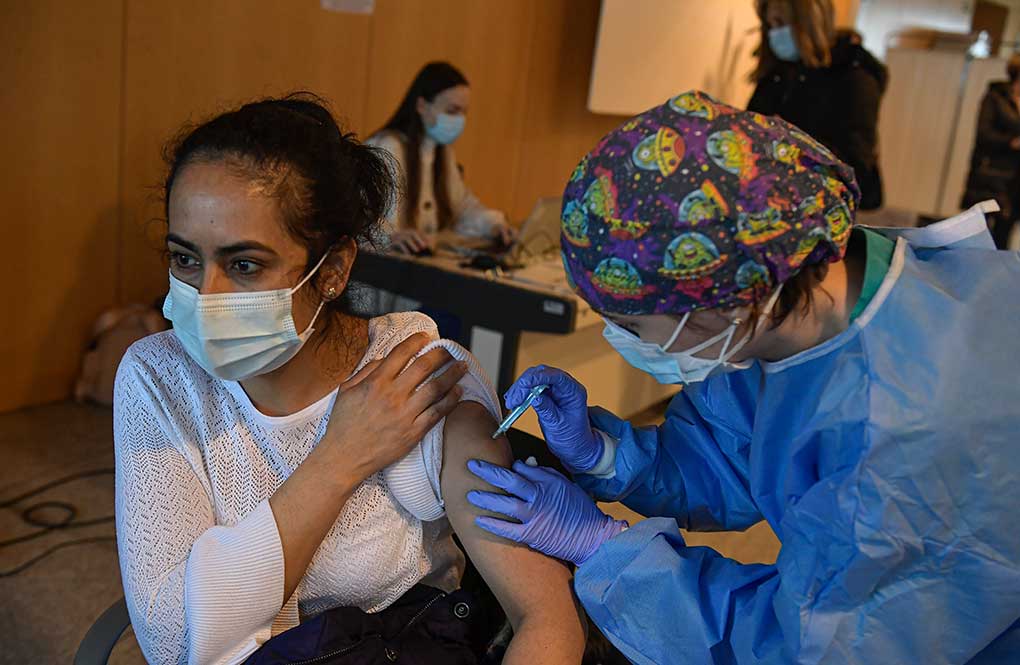The International Monetary Fund has warned the global economy remains hostage to the COVID-19 pandemic until everyone is vaccinated across the world.
In its latest world economic outlook, the IMF warns if COVID-19 were to have a prolonged impact into the medium term, it could reduce global economic growth by a cumulative $US5.3 trillion ($A7.2 trillion) over the next five years.
“Recent developments have made it abundantly clear that we are all in this together and the pandemic is not over anywhere until it is over everywhere,” IMF economic counsellor and director of research Gita Gopinath said.
“The global community must step up efforts to ensure equitable vaccine access for every country, overcome vaccine hesitancy where there is adequate supply, and secure better economic prospects for all.”
The IMF took its world growth forecast down a notch to 5.9 per cent for 2021, from six per cent previously.
This, it says, reflects disruptions to supply chains among advanced economies and worsening pandemic dynamics in low-income developing economies.
However, this is partly offset by stronger near-term prospects among some commodity exporting emerging market and developing countries.
The world economy is expected to expand by 4.9 per cent in 2022, and then moderate to around 3.3 per cent thereafter.
For Australia, the economy is now forecast to grow by 3.5 per cent this year, a downgrade from 5.3 per cent previously.
Treasurer Josh Frydenberg said this was to be expected with extended lockdowns resulting from the Delta strain having impacted Australia’s economy.
“Encouragingly, the IMF sees a strong rebound as restrictions ease, projecting Australia’s economy to grow by 4.1 per cent in 2022, an upgrade of 1.1 percentage points,” Mr Frydenberg said.
“With NSW now reopening and Victoria to soon follow suit, the national economy is being reignited.”
The IMF again flagged its concerns about the global inflation outlook, predicting “amid high uncertainty” of it returning to pre-pandemic levels by mid-2022.
Dr Gopinath said the monetary policy of central banks will need to walk a fine line between tackling inflation and financial risks, and supporting the economic recovery.
“While monetary policy can generally look through transitory increases in inflation, central banks should be prepared to act quickly if the risks of rising inflation expectations become more material in this uncharted recovery,” she said.
(AAP)













